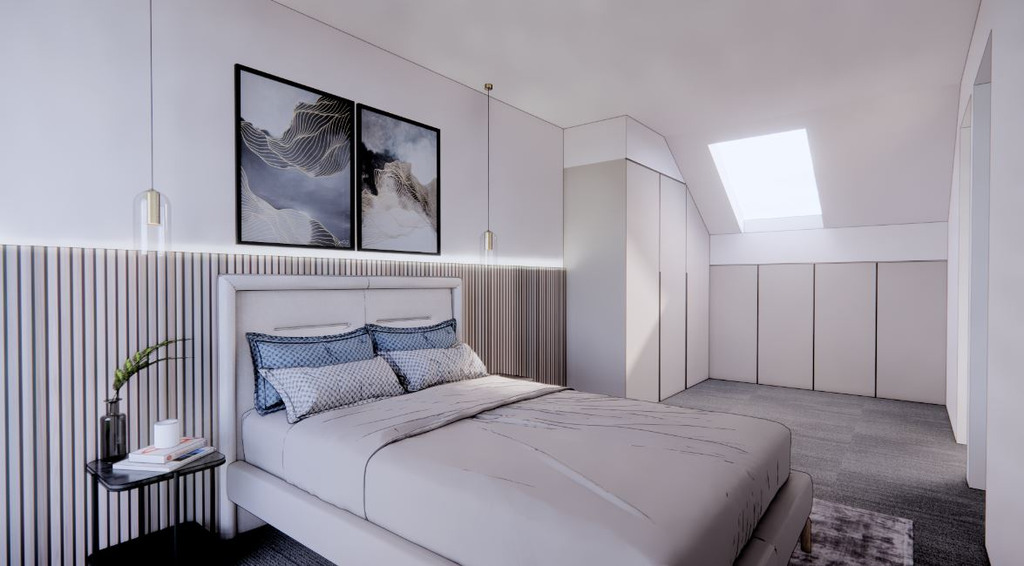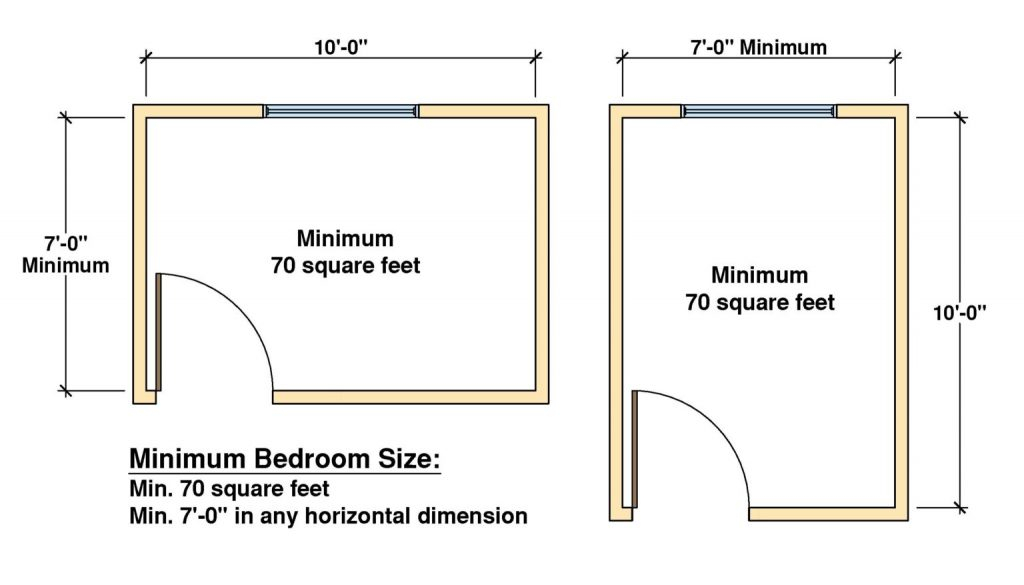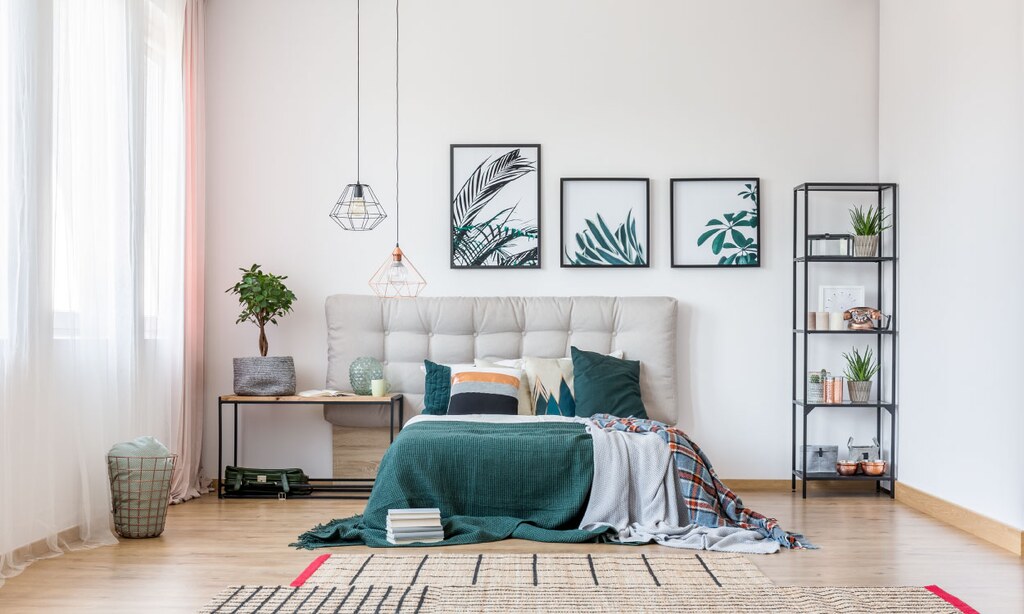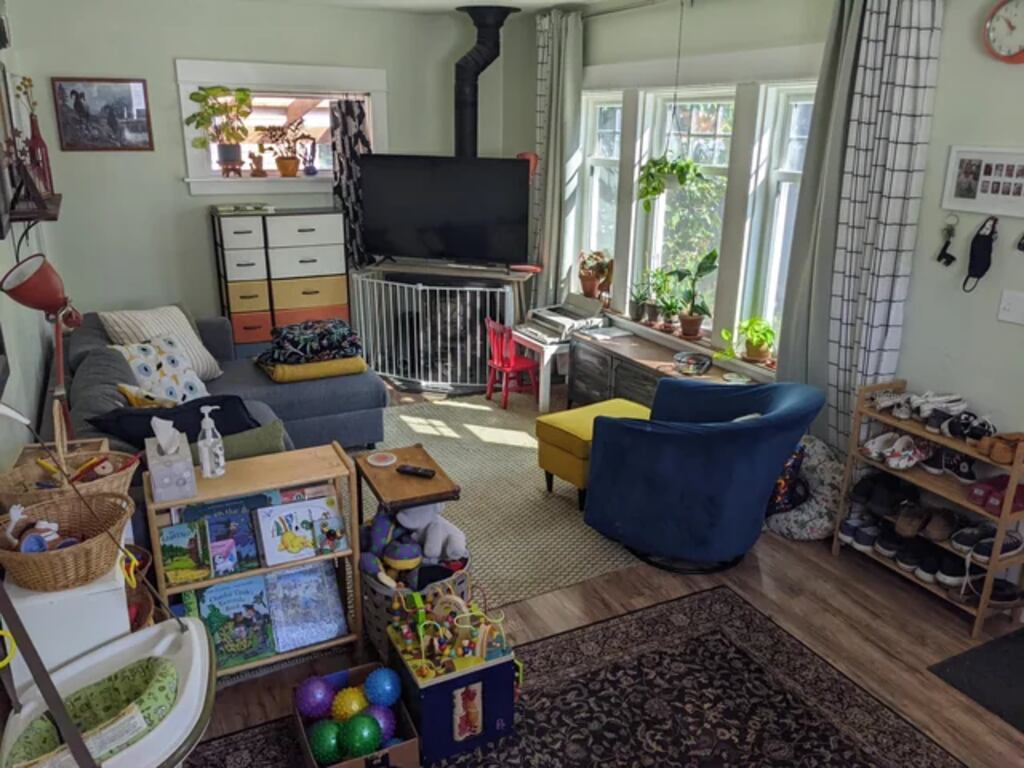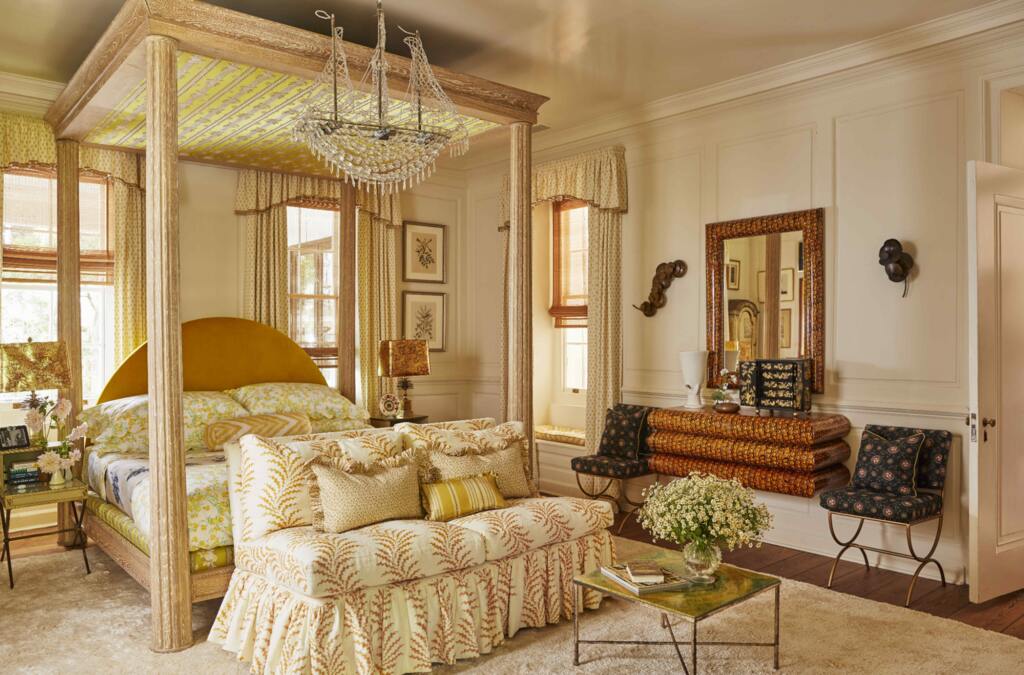In this blog, I’m diving into a question that many UK homeowners, renters, and renovators often ask: What’s the average bedroom size, and does mine measure up?
Whether planning a new layout, buying a home, or just curious about how your space compares, understanding bedroom size standards can help you make informed decisions.
From legal minimums to what’s considered spacious, we’ll explore how they differ across property types, and share smart space-saving tips if your room feels too snug.
Let’s get started!
What is the Average Bedroom Size in the UK?
The truth is, there’s no single answer to this question. Bedrooms in the UK vary significantly depending on the type of property, its location, and whether it’s an older home or a modern build.
However, let’s break it down into some general figures:
- Single bedroom – Typically ranges from 6.5 to 10 square metres (70 to 108 sq ft).
- Double bedroom – Usually between 10 and 16 square metres (108 to 172 sq ft).
- Master bedroom – Can be anywhere from 12 to 20+ square meters (130 to 215+ sq ft).
Now, these are just averages. If your bedroom is on the smaller side, don’t panic—it’s quite common, especially in certain property types.
Bedroom Size Based on Property Type
If you live in a flat or apartment, chances are your bedrooms are on the smaller side. Many single bedrooms in flats barely exceed 6 square meters, while double rooms might be around 10-12 square meters.
In a terraced house, the bedrooms are often compact, especially the smallest room.
If your home has a third or fourth bedroom, it might be as tiny as 7 square meters—which is almost borderline for being considered a bedroom at all!
Semi-detached and detached houses tend to have larger bedrooms, especially older ones built before the 1980s.
A master bedroom in these homes often exceeds 15 square meters, giving you much more breathing space.
Bedroom Size Based on Location
Where you live in the UK can also make a huge difference.
- London – Due to high property demand and space constraints, bedrooms here tend to be smaller. Even a double bedroom might only be 9-10 square meters.
- Suburban & Rural Areas – In contrast, homes in the countryside or suburbs generally have larger bedrooms, often 15 square meters or more, especially in detached properties.
If you’re in a city, your bedroom might feel compact compared to someone living in a village home. But does that mean small bedrooms are illegal? Let’s take a look at the regulations.
UK Bedroom Size Guidelines & Legal Minimums
You might be wondering, Is there a law about how small a bedroom can be? The answer is yes.
The Housing Act 1985 sets out clear guidelines on the minimum bedroom sizes in the UK to prevent overcrowding.
Here’s what the law says:
- A bedroom for one person must be at least 6.51 square meters (70 sq ft).
- A bedroom for two people must be at least 10.22 square meters (110 sq ft).
- A room smaller than 4.64 square meters (50 sq ft) cannot legally be classified as a bedroom.
If you’re renting a property, this is especially important. A landlord cannot legally market a room as a bedroom if it doesn’t meet these minimum size requirements.
HMO (House in Multiple Occupation) Regulations
If you live in or rent out an HMO property (where multiple people share a home), additional rules apply:
- A single bedroom must be at least 6.51 square meters.
- A double bedroom must be at least 10.22 square meters.
If you’re living in a rental, it’s worth measuring your room to ensure it meets legal standards.
Does Your Bedroom Feel Small? Here’s Why
Even if your bedroom meets the legal size, it might still feel small. But why?
1. Ceiling Height Can Make a Difference
Rooms with low ceilings tend to feel smaller than they are. Older homes often have high ceilings, which give the illusion of a more spacious room.
2. Furniture Placement Matters
A poorly arranged bedroom can waste space. If your bed is positioned awkwardly or if you have too many bulky furniture pieces, it can make your room feel even tighter.
3. Lighting & Windows Play a Role
A bedroom with plenty of natural light will always feel more spacious. If your room has a small window or lacks proper lighting, it may feel more cramped than it is.
4. Too Much Clutter Shrinks Your Space
A cluttered room automatically feels smaller. If you have too many decorations, unnecessary furniture, or piles of clothing, your bedroom might feel overwhelmed.
How to Maximize a Small Bedroom Space
If your bedroom is on the smaller side, don’t worry! There are plenty of ways to make it feel bigger.
1. Choose Smart Furniture
- Use multi-functional furniture, like a bed with built-in storage.
- Opt for wall-mounted shelves instead of bulky bookcases.
- Pick a wardrobe with sliding doors to save space.
2. Use Light Colors on Walls & Furniture
- Stick to soft neutrals like white, beige, or light grey.
- Avoid dark colors on all four walls—they can make a small space feel enclosed.
3. Add Mirrors to Reflect Light
- A large mirror can instantly make a room feel twice as big.
- Place it opposite a window to reflect natural light.
4. Declutter & Stay Organized
- Use under-bed storage to free up space.
- Keep surfaces clean and minimal to make the room feel more open.
How Does Your Bedroom Size Compare?
Now, let’s get practical! Grab a measuring tape and find out how your bedroom compares to the UK average.
How to Measure Your Bedroom
- Measure the length and width of your room in meters.
- Multiply these numbers together to get the total square meters.
- Compare it to the UK averages to see where your bedroom stands!
For example, if your bedroom is 3m x 3m, that’s 9 square meters, which is perfect for a double room.
How does your bedroom measure up? Bigger than expected? Or smaller than you’d like?
Conclusion
At the end of the day, bedroom size isn’t everything—but it does affect how comfortable and functional your space feels. Even a small bedroom can feel spacious if it’s well-organized. And even a large bedroom can feel cramped if it’s cluttered.
So, rather than focusing purely on square footage, ask yourself: Am I making the most of my space? Now it’s your turn! How big is your bedroom? Do you think UK bedrooms are too small? Share your thoughts in the comments below!
FAQs
What is the smallest legal bedroom size in the UK?
The legal minimum for a single bedroom is 6.51 square meters (70 sq ft), while a double bedroom must be at least 10.22 square meters (110 sq ft). Anything smaller than 4.64 square meters (50 sq ft) cannot legally be classified as a bedroom.
What is the average size of a double bedroom in the UK?
A typical double bedroom in the UK ranges from 10 to 16 square meters (108 to 172 sq ft). However, in cities like London, double bedrooms can sometimes be as small as 9 square meters due to space constraints.
Do bedroom sizes vary based on property type?
Yes! Flats and terraced houses often have smaller bedrooms, especially single rooms, which can be as little as 6 square meters. Semi-detached and detached homes generally offer more spacious bedrooms, often exceeding 15 square meters for a master bedroom.
Can a landlord advertise a tiny room as a bedroom?
No, if a bedroom is smaller than 6.51 square meters (70 sq ft) for one person or 10.22 square meters (110 sq ft) for two people, a landlord cannot legally market it as a bedroom in a rental property.
Why does my bedroom feel smaller than its actual size?
Factors like low ceilings, poor furniture placement, minimal natural light, and clutter can make a bedroom feel more cramped than it is. Smart design choices can help maximize your space.

